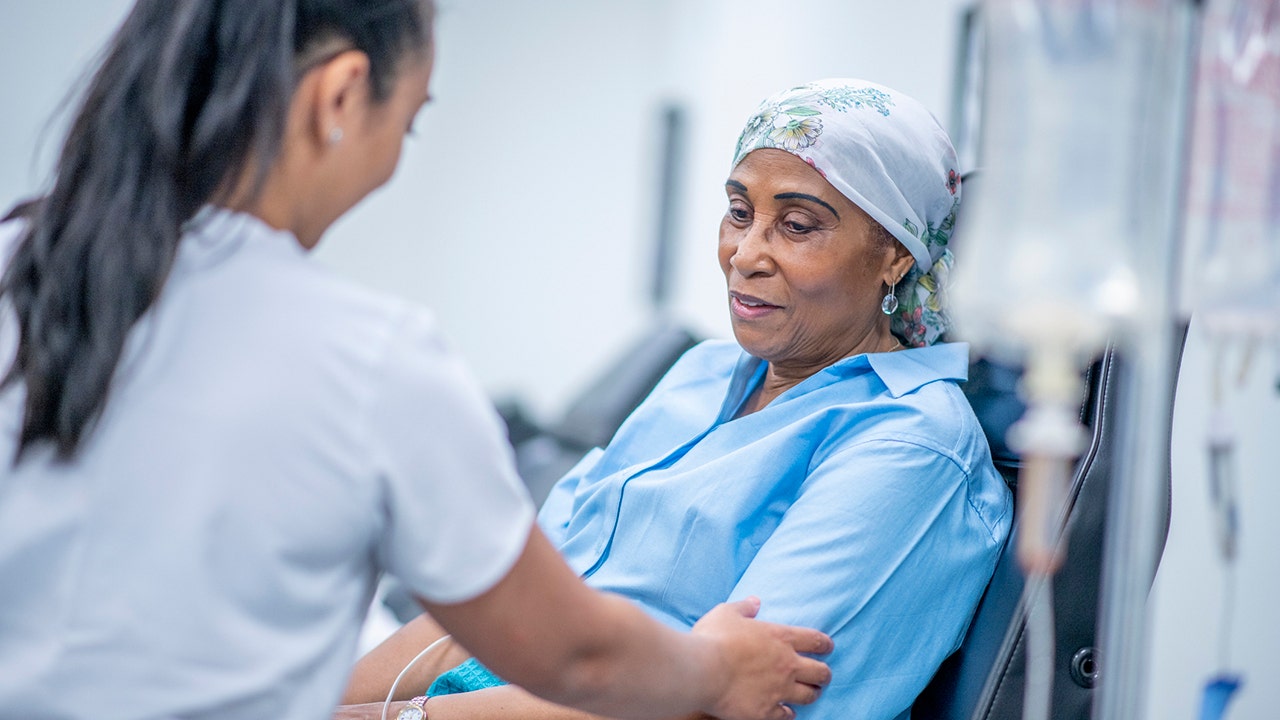High-Dose Vitamin C Shows Promise in Fighting Late-Stage Pancreatic Cancer
A new study suggests high-dose intravenous vitamin C, when coupled with chemotherapy, may significantly prolong survival rates in patients with late-stage metastatic pancreatic cancer.
Researchers at the University of Iowa Carver College of Medicine conducted a randomized phase 2 clinical trial involving 34 patients. The study, published in the journal Redox Biology, found that administering 75 grams of vitamin C three times weekly doubled overall survival time from eight months to 16 months.
Progression-free survival also saw improvement, extending from four to six months. These groundbreaking findings, the result of 20 years of research, have sparked optimism within the medical community.
Lead researcher Dr. Joseph Cullen, a professor of surgery and radiation oncology at the University of Iowa, explained that high doses of vitamin C, unlike lower doses commonly found in foods, generate hydrogen peroxide. This potent substance directly attacks and kills cancer cells.
Intriguingly, the patients in the trial seemed to tolerate chemotherapy better when receiving high-dose vitamin C. This, in turn, allowed them to receive larger doses of chemotherapy for a longer duration, further contributing to tumor cell destruction.
“We found that at these high doses, ascorbate, which is vitamin C, actually generates hydrogen peroxide,” Cullen said. “And the hydrogen peroxide is what kills the cancer cells.”
Based on these promising results, researchers suggest that high-dose intravenous vitamin C’s potential extends beyond pancreatic cancer. They are currently investigating its effectiveness against lung and brain cancers.
Surgical Oncologist Highlights Potential Breakthrough
Dr. Georgios Georgakis, a surgical oncologist at Stony Brook Medicine in New York, lauded the findings, stating, “It seems to be working synergistically with chemotherapy.” Although not directly involved in the study, Dr. Georgakis believes this approach holds significant potential for cancer treatment.
Another expert, Dr. Joshua Strauss, an attending hematologist and medical oncologist at Advanced Care Oncology and Hematology Associates of the Atlantic Medical Group in Morristown, New Jersey, echoed this sentiment. He highlighted the affordability and tolerability of vitamin C as key advantages.
“Small clinical trials such as this one have recently provided exciting and consistent signals that vitamin C, which is inexpensive and well-tolerated, may improve the efficacy of chemotherapy with a good quality of life,” said Dr. Strauss.
Exploring the Benefits of Vitamin C
Vitamin C, also known as ascorbic acid, is an essential dietary nutrient found naturally in various fruits and vegetables. It plays a crucial role in numerous bodily functions, including tissue growth and repair, collagen production, wound healing, bone and skin health, and immune support.
While in lower doses vitamin C functions as an antioxidant, protecting cells from damage, higher doses exhibit pro-oxidant properties.
“Once the body has taken in enough vitamin C, any excess is excreted through the kidneys, and won’t be absorbed,” Cullen explained. “But once the dosage is bumped to much higher levels, such as 75 grams, it acts as a pro-oxidant.
So, it actually makes these reactive oxygen species that kill cancer cells well.”
Although these findings are encouraging, researchers acknowledge the need for further investigation. A larger, multi-million dollar phase 3 trial is required to confirm these results and explore the long-term effects and safety of high-dose intravenous vitamin C.
For now, Dr. Cullen advises cancer patients interested in exploring this approach to discuss it with their oncologist and seek qualified professionals who can administer intravenous
What other types of cancer are researchers currently investigating the effects of high-dose vitamin C on?
## Could High-Dose Vitamin C Be a Game Changer in Cancer Treatment?
**(Intro Music)
**Host:** Welcome back to the show. Today we’re diving into some truly exciting news in the world of cancer research. A new study suggests high-dose intravenous vitamin C, when combined with chemotherapy, could significantly extend survival times for patients with late-stage pancreatic cancer. Joining us to discuss this potential breakthrough is Dr. [Guest Name], a leading expert in [Guest’s Specialty]. Welcome to the show, Dr. [Guest Name].
**Dr. [Guest Name]:** Thank you for having me. It’s an exciting time in cancer research, and I’m happy to discuss these findings.
**Host:**
Absolutely. This study, published in the journal Redox Biology, found that patients receiving high doses of Vitamin C alongside chemotherapy lived twice as long – 16 months versus 8 months. Can you explain how this works?
**Dr. [Guest Name]:** Absolutely. The study, led by Dr. Joseph Cullen at the University of Iowa, found that high doses of vitamin C, unlike what you’d get from food, actually generate hydrogen peroxide. This acts as a powerful oxidizing agent, directly attacking and killing cancer cells. [[1](https://pmc.ncbi.nlm.nih.gov/articles/PMC7996511/)]
**Host:** That’s fascinating! And it seems there might be more benefits beyond just extending survival. The study also showed improvement in progression-free survival, right?
**Dr. [Guest Name]:** Yes, that’s correct. Progression-free survival, or the time patients live without the cancer worsening, also doubled. This suggests that high-dose vitamin C may be slowing down the growth of the tumor.
**Host:** That’s remarkable. Dr. Cullen even mentions that patients seemed to tolerate chemotherapy better when receiving vitamin C. What do you think the implications of this could be?
**Dr. [Guest Name]:** This is incredibly significant. It suggests that high-dose vitamin C may be mitigating the side effects of chemotherapy, allowing patients to receive potentially life-saving treatment for longer periods.
**Host:** So this isn’t just about higher doses of Vitamin C, it’s about potentially changing the entire treatment approach?
**Dr. [Guest Name]:** Exactly. Combining high-dose vitamin C with chemotherapy may be a more effective and gentler approach to treating pancreatic cancer and potentially other cancers.
**Host:** This study focused on pancreatic cancer, but are researchers looking into its effects on other types of cancers?
**Dr. [Guest Name]: ** Yes, the researchers involved in this study are now investigating the effectiveness of high-dose vitamin C against lung and brain cancers. [[1](https://pmc.ncbi.nlm.nih.gov/articles/PMC7996511/)]
**Host:** This truly is groundbreaking research. Dr. [Guest Name], thank you so much for shedding light on these findings and their potential impact on the fight against cancer.
**Dr. [Guest Name]:** It’s my pleasure.
**(Outro Music)**



